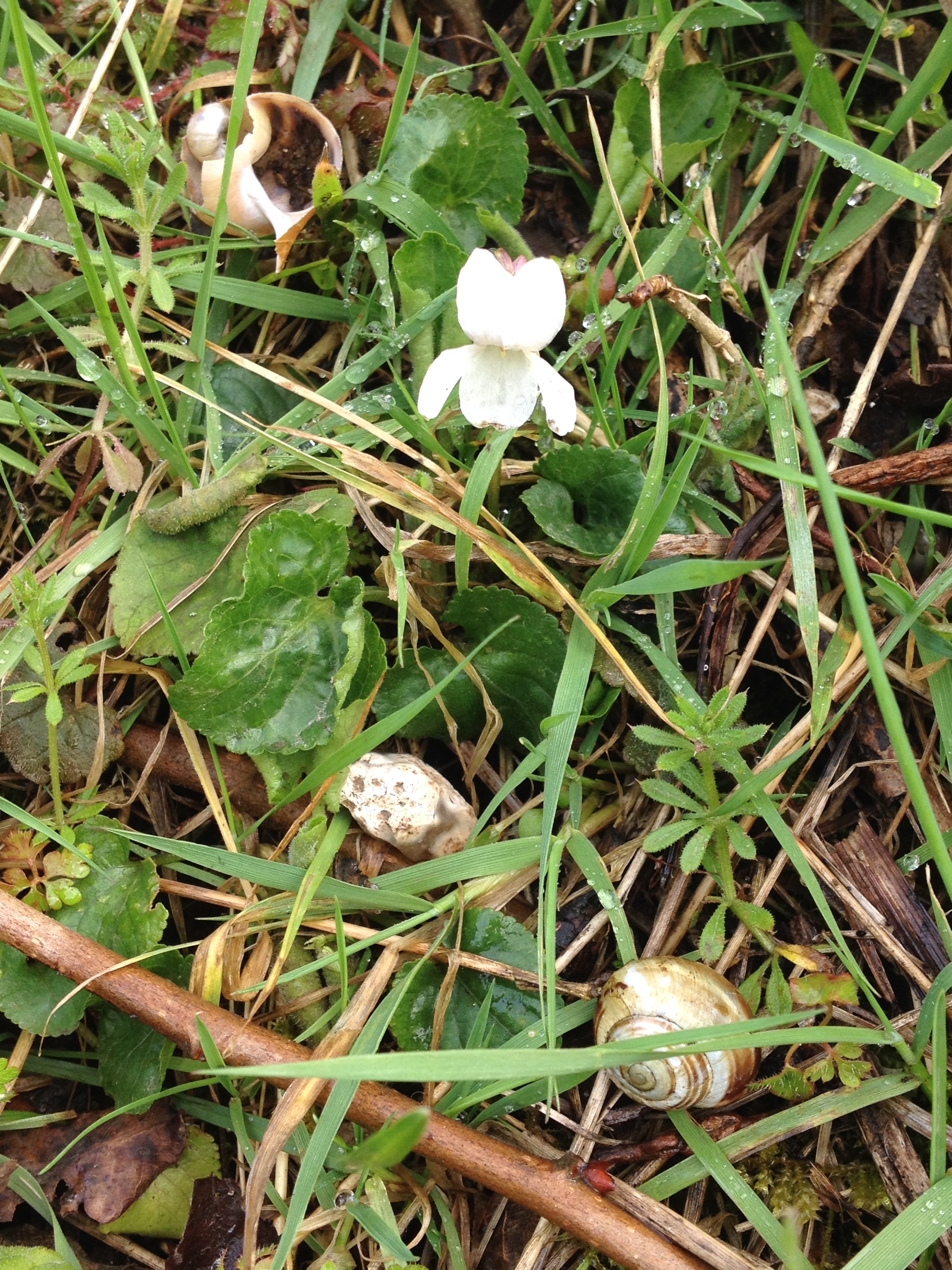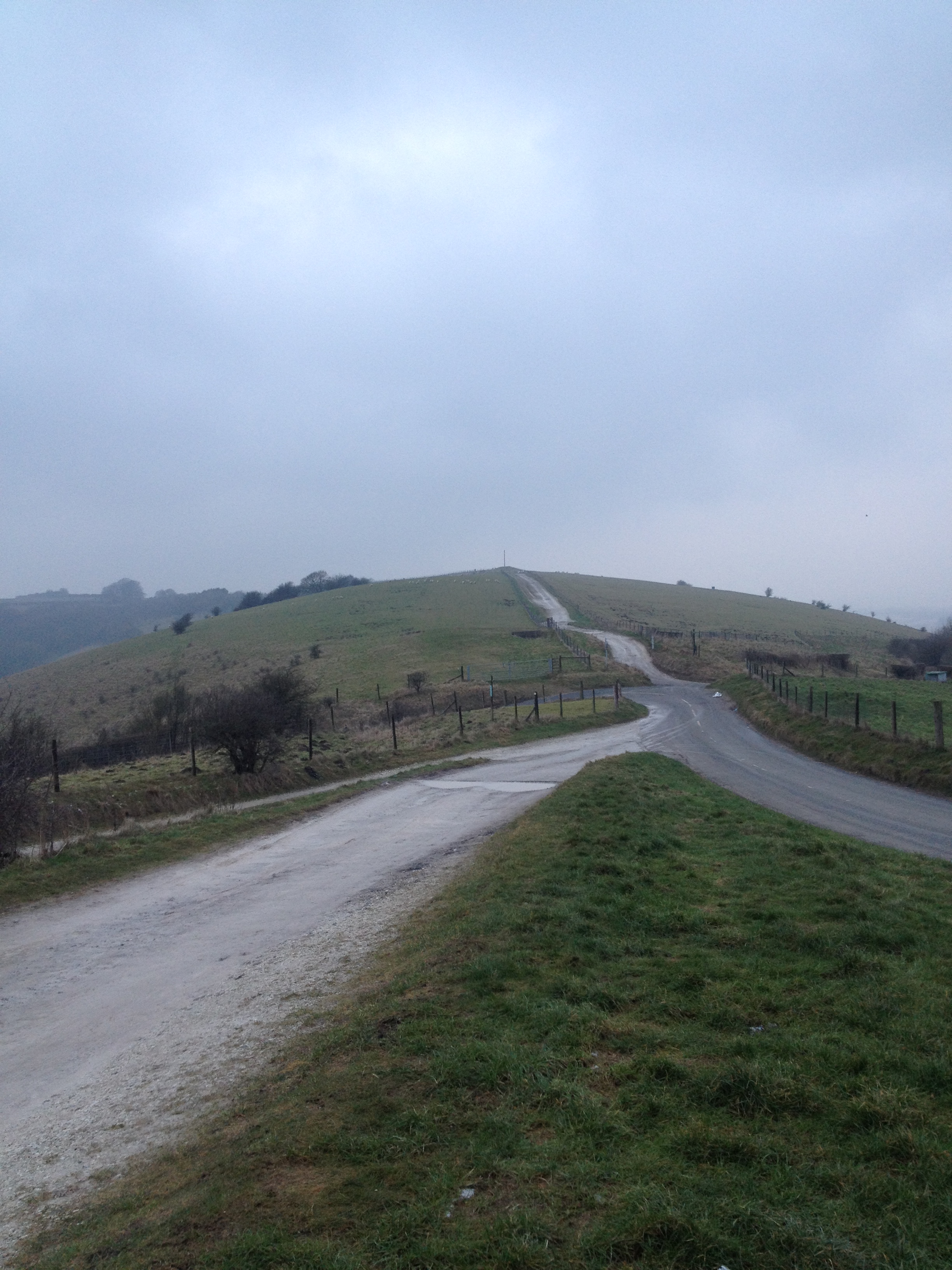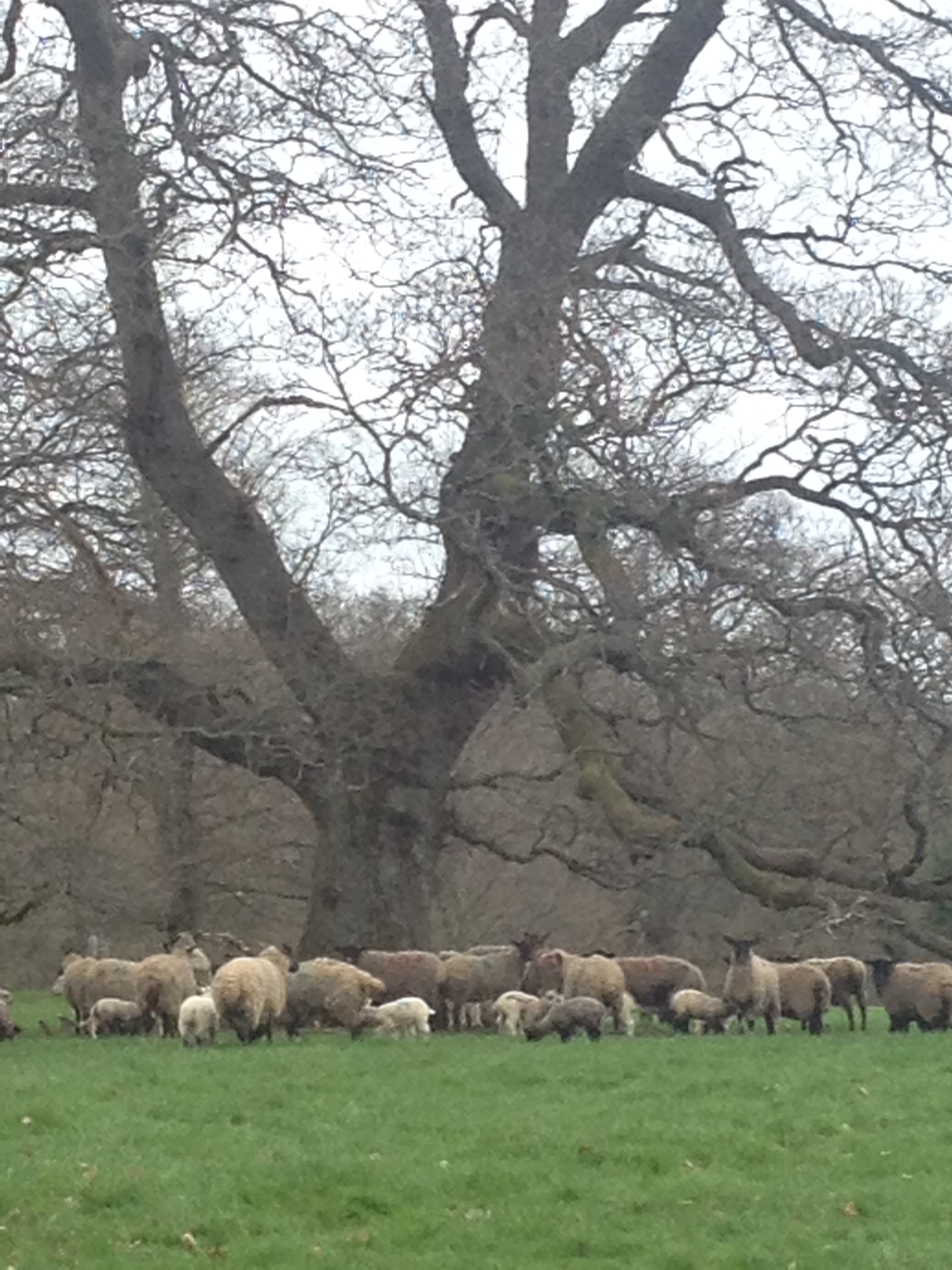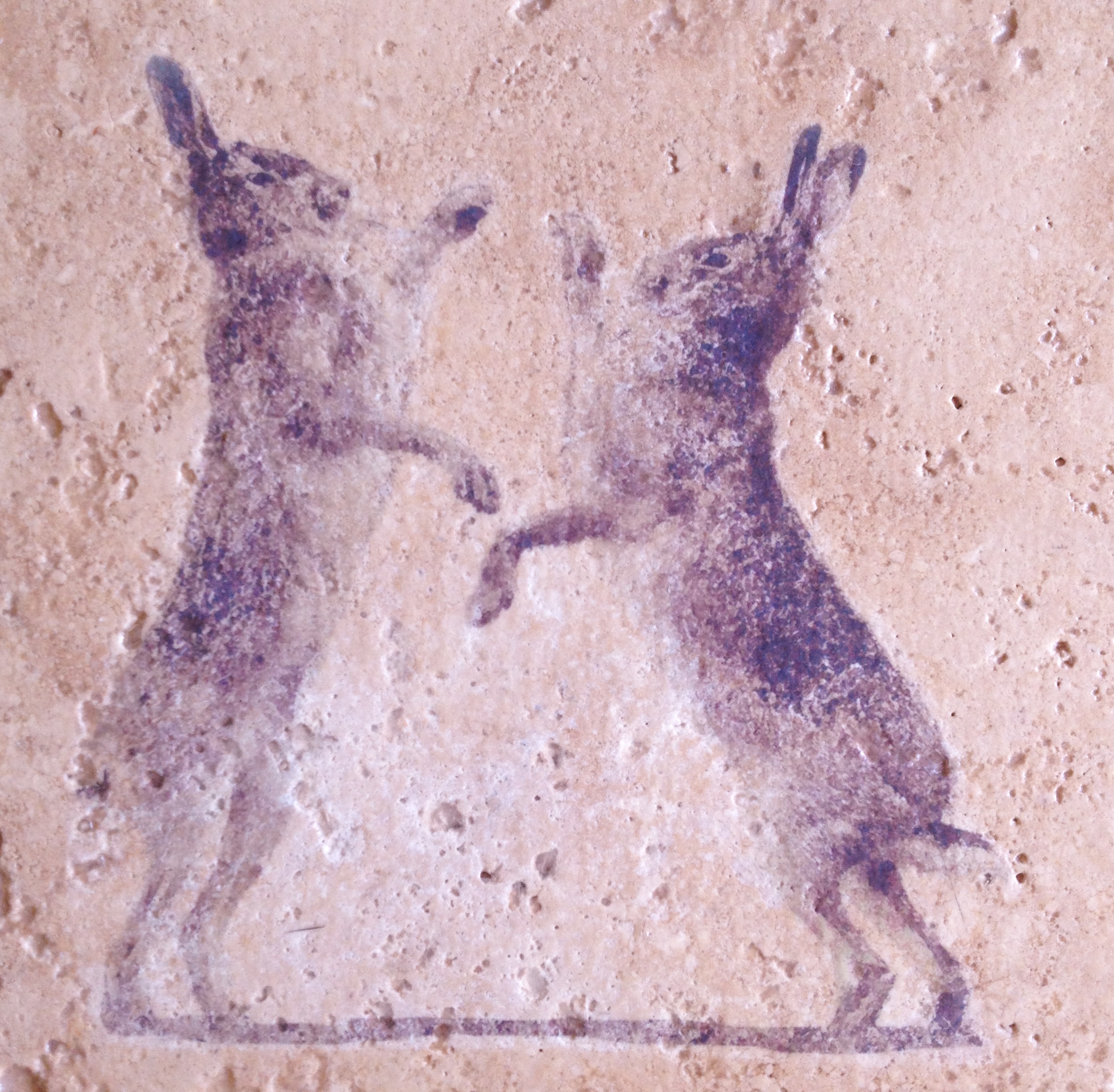Rain. Battles. White Violets.

And so it rains. Mud becomes part of the fabric of living, washing off the fields with little to stop it and slewing into everything else. Hail the size of garden peas hammers down so hard one night, the spider in the corner of my writing hut roof trembles. Adrift from the house like a boat at sea, I am informed that the hail came down the chimney and through the air vents, filled a whole cupboard – and had to be swept up.
It doesn’t melt. It remains, along with the loose vertebrae of dirty drifts, in furrows, ridges, hollows and pots, like an explosion of beanbag polystyrene. It snuggles into the earth, stealing spring’s warmth.
For days, the green woodpecker has been calling incessantly from the wood, laughing hysterically, close to tears. Prospecting nest holes, it flies between trees like a paper plane: an origami flight, folded in green and red paper. His old name? Rainbird.
An owl calls at noon and is answered by two more. Cloud obscures the hill that today, looks like the mountain it was once considered to be. It looms. When I am up there, the clouds are round my ankles.

My mind keeps returning to environmental pressures that won’t leave me alone. That haunt, nag and provoke me. That are always on the periphery. The flawed badger cull is on its way here. Flower-rich verges of orchids have been destroyed to put cabling in over the hill (before being stopped)**. A hedge has been grubbed up where I know there were hedgehogs and felling has started, unannounced, in the wood the village’s children (including my own) have grown up playing in. It transpires that its timber has been bought by a forestry company, 60 miles away. I put on my best Lois Lane (Breakfast at Tiffany’s trenchcoat, lipstick and wellies) and clump down the road to talk to them. I come away with names, having not given mine, my notebook full of anger – and am called back with a not-uncommon warning: ‘And Miss? You take care now, won’t you?’ There is a history of unrecorded dormice and adders in this wood. And a billion memories. I feel hunted, haunted. And pretty ineffectual.

I go for a walk in the opposite direction, away from the chainsaws that jangle my nerves. Rainwater pours in a river out of the sheep field. I haul a lamb out of a water-filled hollow. Another newborn lamb stands hump-backed, head down, its umbilical cord tethering it to the wet, cold earth, like a cowboy’s tired, thin, ground-tied horse.
I shlock through wet, sucking fields to watch hares. On the ridge of the arable I catch two boxing, a third squatting, hunkered down like a small grey-wether; a dun-coloured sarsen stone. The match seems short and ill-tempered, rather than exuberant. They do not leap, just scratch violently at each other on their hindlegs, clumps of wet fur flying out with sprays of water. As I pass the wood I see three more out the corner of my eye, sheltering in the wings. I am careful not to turn my head to alert them they’ve been spotted. The furthest stretches like a cat. The other two are butted up against the trunks of trees, parked up in the bays between roots, leathery ears flat along backs. They think I haven’t seen them and freeze. I can’t help but smile.

Then, the splashed white droppings of a roosting bird upon the dog’s mercury – turn out to be the first white violets. I rally a little more. There are skylarks singing through the rain, high out of sight. And the rain that rattles on the corrugated roof of the long barn, also falls on the bluebell leaves, thickening in the wood. Soon, there will be swallows.
**I am pleased to say that after meeting with contractors, this will be put right. On understanding the situation, they could not have been more apologetic and helpful.
Leave a Reply to Nature on the EdgeCancel reply